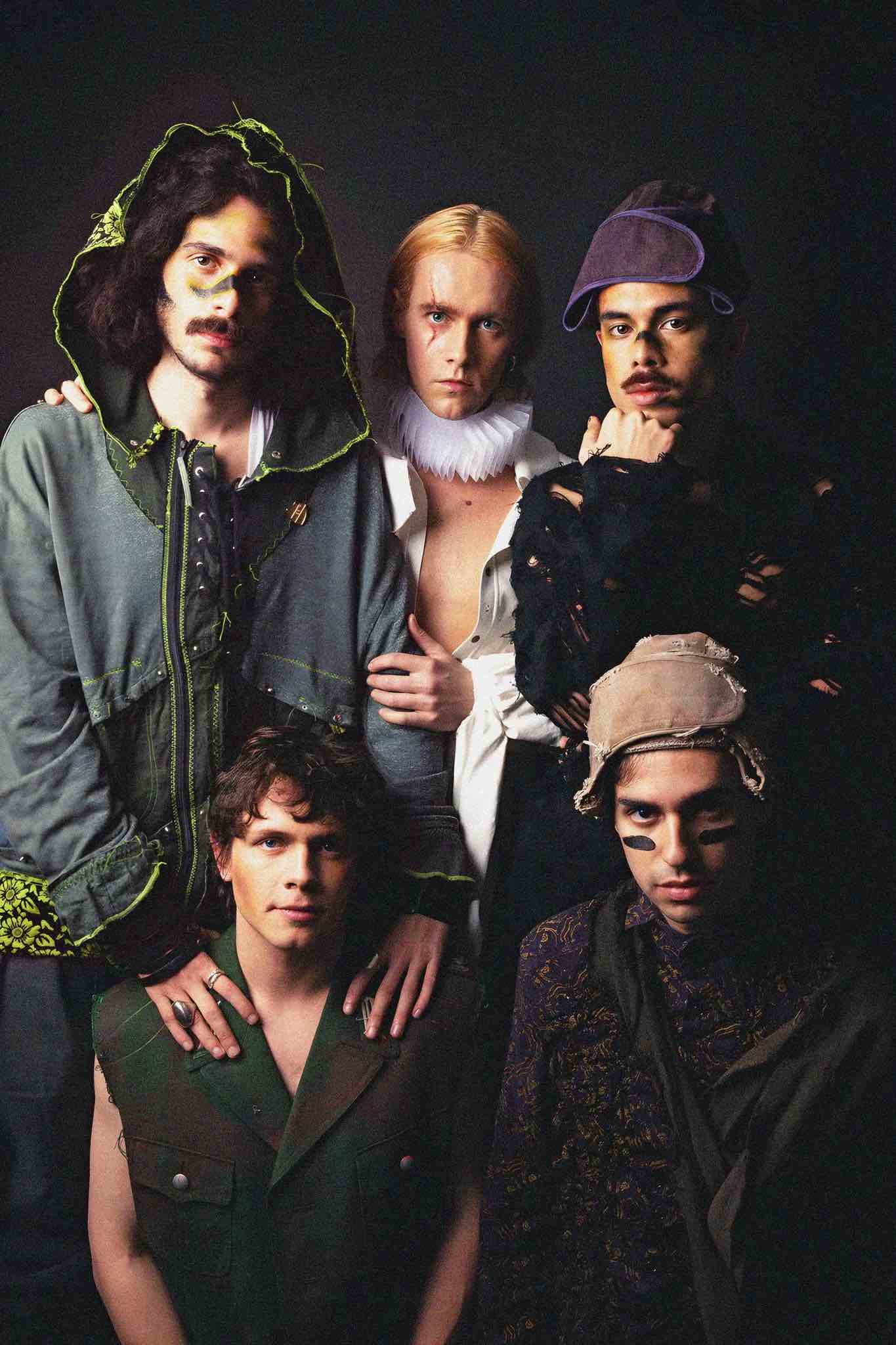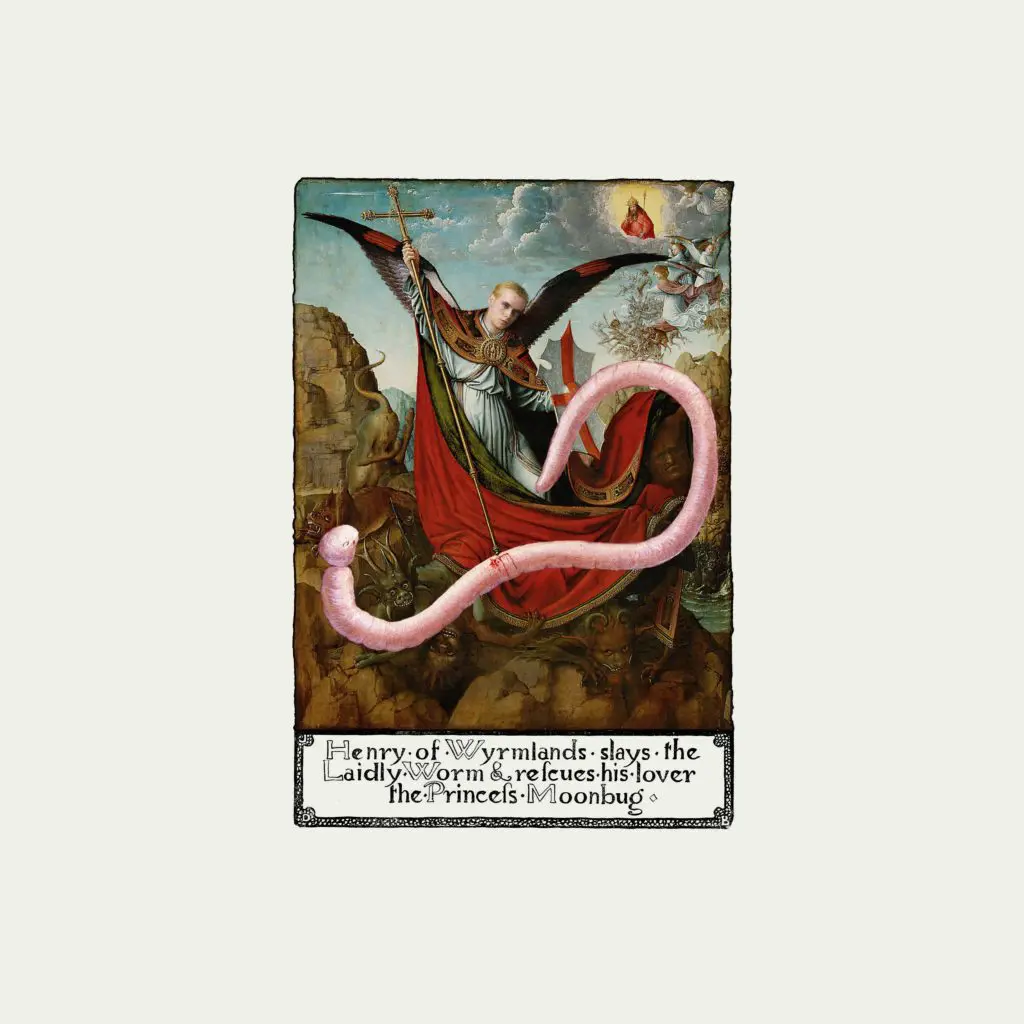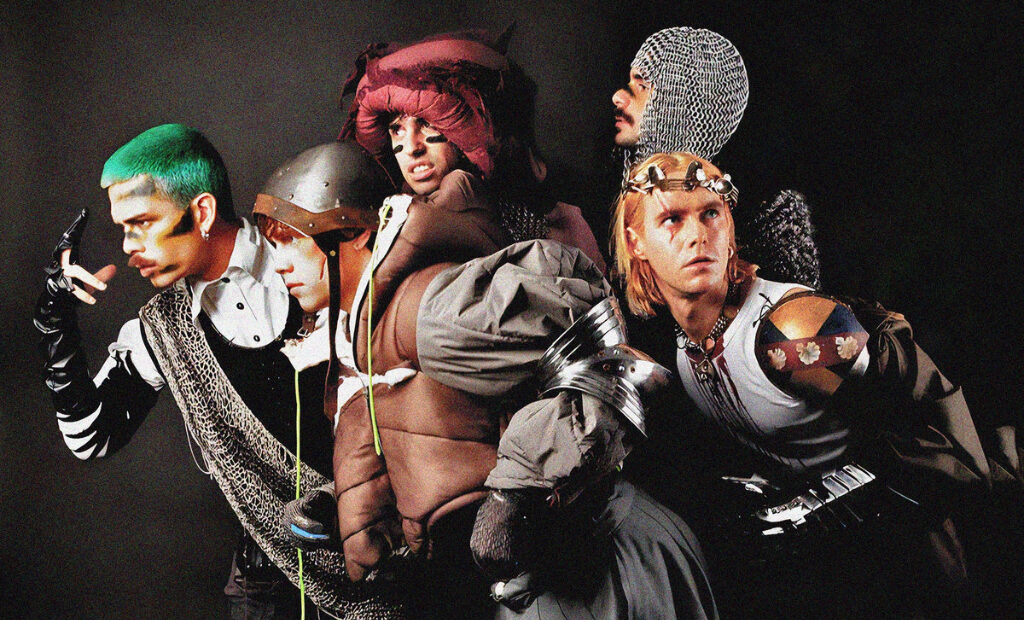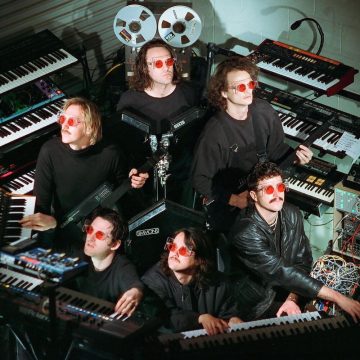★★★★☆
On the opening of HMLTD’s 2020 album West of Eden, lead vocalist and writer Henry Spychalski pronounced: “Three years ago I said / The West is dying right underneath my nose”.
His words were, in turn, a reference to one of the band’s earliest singles, ‘Stained’, which gives you an indication of the concerns that have plagued the London outfit’s minds since their inception: the downfall of society and its consequences on people.
Only, in deconstructing some of the ailments of 21st-century life, the band have come under fire. In an NME interview in 2019, Spychalski (another veneer, being the pseudonym for Henry Chisholm) explained how West of Eden sought to offer an alternative version to masculinity; one, he said, that was “different from the toxic version… which underlies patriarchy”.

This was really in response to criticism that had been levelled at the band two years prior, when a Vice article accused them of ‘queerbaiting’; of being a bunch of straight, white guys that were “indisputably indebted – at least aesthetically – to club kids, drag queens and queer cultural figures,” without “understanding the hardships that come alongside living a genuine life as a queer person”.
Already contained within this brief history of HMLTD lie wider cultural and philosophical quandaries, all of which distract from the music. On The Worm, it’s safe to say HMLTD really do let the music do the talking.
That’s perhaps little wonder given the impressive 47-strong firepower of musicians that brought The Worm to life across a two-year period, including a gospel choir and a 16-piece string orchestra, the latter of which was recorded in Greece.
Set in a version of Mediaeval England, this part-concept, part-polemic LP first came to Spychalski in a dream, which was then fleshed out by drummer Achilleas Sarantaris, guitarist and producer Duc Peterman, and Seth Evans on keys. In short, it figures Spychalski as a leader of a group called The Grunters, fighting a resistance against the tyrannical Devertebrates in a world that’s been swallowed by a giant worm.

If it sounds a little cinematic, it is. The band have attached their creative sails to Gesamtkunstwerk (or ‘total art’) and all the visual onslaught that entails. This picture-painting begins from the opening, itself a dream.
Through its hymn-like choral singing, ‘Worm’s Dream’ depicts London as “a hollowed bombshell, children playing in the rubble, where the worm had thrown up its tail, people crawled out, in their millions”. Sonically, it’s merely the calm before the wild and varied storm.
The free-flowing jazz of the subsequent tune ‘Wyrmlands’ wriggles and writhes before being brought down to a mere pitter-patter of drums midway through, but for it all to be lifted once more in a prog-rocky ending that induces as much of a how-the-fuck-did-we-get-here sensation as Lil Yachty’s sensational left-turn of an album released earlier this year.
The pomp and ceremonious crescendo of ‘The End Is Now’ transmutes an end-of-days anxiety into something resembling joy (at least in the face of despair), with elements of vintage soul and steamy guitars. It’s all there in the chorus’s refrain, “There’s a fire in this housе / It’s burning down” – life is crumbling around, bubbling all passions to the surface.
We take yet more sonic turns. Inevitably. Only a fool would limit The Worm to a few genres, let alone a single one. ‘Days’ has the piano-backed, twinkly reflections of Radiohead’s A Moon Shaped Pool.
Meanwhile, the nasal vocals of ‘Saddest Worm Ever’ match its downtrodden message before a mediaeval public service announcement reconjures the album’s imagined land. Conversely, the beginning of ‘Liverpool Street’ digs into the psyche of frontman Henry Spychalski, with the help of an accented therapist burrowing away and explaining a trauma that’s induced “narcissism, psychosis and depression”, with a futuristic sound more akin to Amnesiac.
Although broad in its imaginary feats, The Worm ultimately explores the self and ways in which to resolve one’s disillusionment in an increasingly capitulating society. The worm that has consumed this imaginary realm is a metaphor for the inner demons that consume us all.
Where West of Eden is the fall of society around us, The Worm is a radical alternative to freedom through overcoming the self – a means to wriggle your way out of human struggle.

Photo: Erika Denis-Febles
Big words, but this is absolutely accomplished through the album’s apex: the best track of HMLTD’s lives, ‘Past Life (Sinnerman’s Song)’. Explicitly and sonically inspired by Nina Simone’s version of ‘Sinnerman’, it dips between more scintillating jazz, Spychalski urging us to “keep the faith” along the way, before his ‘The Revolution Will Not Be Televised’-like instructions that are delivered over a haunting organ.
In all, it’s a song of spiritual cleansing, of redemption, as Spychalski describes defeating the worm: “Life is very beautiful / Then I opened my hands / And the worm crawled out / And then I opened my eyes.”
Simone is among the many references that helped influence HMLTD’s latest offering. So too were 14th-century texts The Canterbury Tales and The Decameron, Aleksey German’s 2013 sci-fi film Hard To Be A God, Bergman’s The Seventh Seal and Tarkovsky’s Andrei Rublev.
You could almost call it pretentious – a charge laid at the door of HMLTD a few times before. But when music sounds well-considered and intricately constructed, it’s hard to say it’s pretending any such thing. HMLTD will undoubtedly refer to this fantastically constructed world in another three years.





